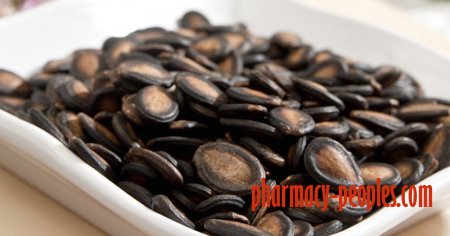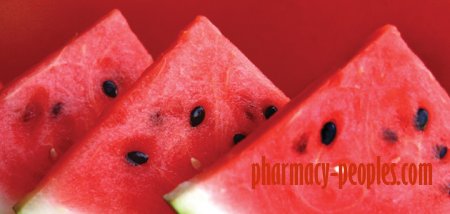Watermelon seeds may help you to reduce bad cholesterol levels
Watermelon seeds have important nutritional components such as zinc, manganese, copper, potassium, iron, phosphorus, magnesium, several B Vitamins and protein. When watermelon seeds are dried and roasted, they can easily take the place of other unhealthy snacks. In the hot summer days we want to eat a juicy, bright red slice of watermelon. This refreshing snack is one of summer’s many pleasures. Many people think that the black seeds are their side effect but they do not know that they can help a lot in their health. You can pick these seeds while you are cutting the watermelon for a fruit salad. Nowadays there are seedless watermelons for people who do not want watermelon seeds. The watermelon seeds when are dried, they are edible and their nutritional value is very high. These seeds are low in calories.
Health benefits of watermelon seeds
Reduces body fat: Watermelon seeds have high amounts of citrulline which metabolizes the essential amino acid arginine. Arginine can help to reduce the rate at which the body stores fat. Also these seeds are low in calories which aids in weight loss. They have a little fat but it is healthy polyunsaturated and monounsaturated fatty acids. When you snack on watermelon seeds, it can help you to control your body fat.
Keeps muscles healthy: Watermelon seeds are very effective in improving your muscle health and prevent muscle soreness after workouts. These seeds have L-citrulline which is important nutrient for maintaining and repair muscle mass. L-citrulline can help with the smooth muscle relaxation, relieves muscle soreness and enhances anaerobic performance. Also they have magnesium which is important for the muscle health. Magnesium stimulates calcium reuptake which can prevent cramps and help maintaining strong muscles.
Watermelon seeds health benefits
Keeps blood pressure under control: Watermelon seeds are rich in protein which consists of several amino acids. One of these amino acids is the arginine. Our bodies are producing some arginine but we should consume additional arginine through our diet because this can help to regulate the blood pressure and also it can treat the coronary heart disease. Also they have magnesium which can help regulate the blood pressure. When we have low levels of magnesium in our bodies, then this can lead to high blood pressure. Low magnesium can also cause low potassium level which is very important mineral for keeping our blood pressure under control.
Keeps the heart health: When you consume watermelon seeds, then they can ensure you that your heart will stay in a good condition. These seeds are rich in monounsaturated and polyunsaturated fatty acids which can help protect against strokes and heart attacks. These healthy fats can also lower the levels of bad cholesterol in our blood. Watermelon seeds have a good amount of potassium which can help combat heart disease and it will keep your heart healthy. Watermelon seeds also have arginine and citrulline which can help maintain blood flow, arteries and overall cardiovascular functioning.
Fights fatigue: When you eat a handful of watermelon seeds, then they can boost your energy and also they can help to fight fatigue. These seeds are rich in iron which is very important component of the hemoglobin which carries the oxygen throughout our bodies to keep us energized. This element can help our bodies to convert calories into energy and it will nourish our immune system. Also watermelon seeds have L-citrulline which is an amino acid that can help to reduce the feelings of fatigue.
Aids diabetes management: Watermelon seeds can help to manage diabetes and preventing related complications. These seeds have an amino acid which will dilate and relax your blood vessels and also it can reduce the oxidative stress. The magnesium in them can help to regulate the metabolism of carbohydrates which directly can impact your blood sugar levels. There was one study in which is said that watermelon seed extract can be a supportive treatment to combat the complications of diabetes.

